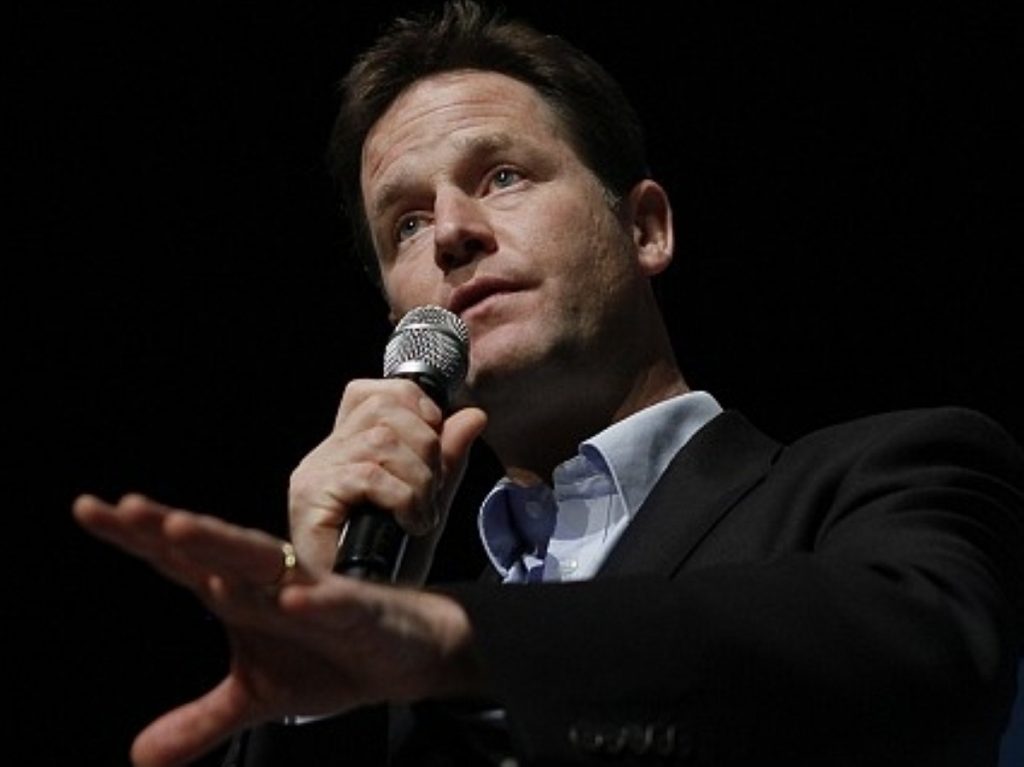Clegg promises free nursery care
By Peter Wozniak
Nick Clegg has announced plans for free nursery education for two-year olds as part of his ‘pupil premium’ policy.
In a speech in Chesterfield, the deputy prime minister detailed the plans which are designed to invest money to ‘follow’ the poorest children throughout their educational lives.
The pupil premium was one of the four key Lib Dem manifesto pledges – and one which made it through the negotiations which led to the coalition agreement.


The plans include allocating £300 million pounds to pay for 15 hours of nursery support for all two-year olds as part of a wider £7 billion package to aid children from poorer backgrounds “escape the circumstances of their birth”.
Mr Clegg said: “It is simply not acceptable that the circumstances of a child’s birth can become a life sentence of disadvantage.
“The odds of a pupil on free school meals achieving five good GCSEs, including English and maths, are less than one third of those of a pupil who is not on free school meals.
“While next week’s CSR [comprehensive spending review] will cut spending, it will increase our investment in fairness, and in particular improving children’s life chances. It will be an investment package for future fairness.
“I can announce today that in the spending review we will provide extra funds – a total of over £7 billion over the spending review period – for a ‘fairness premium’, stretching from the age of two to the age of twenty: from a child’s first shoes to a young adult’s first suit.”
The coalition has been keen to brand itself as a ‘progressive’ government, though it remains to be seen whether policies such as this are able outshine the impending cuts that will dominate the news agenda over the coming months.
The Institute for Fiscal Studies (IFS), which released a report on the government’s proposals today, found the proposals could be “broadly progressive”, but criticised the focus on funding away from those areas that already recieve the most money.
The report claimed this would actually widen inequality, since the areas currently reveiving more funding tend to be deprived.
Luke Sibieta, who co-authored the document, said: “That the pupil premium should be higher in less deprived areas is hard to justify: it would widen inequalities in funding for deprived pupils, rather than reduce them.
“Attaching the same pupil premium to all disadvantaged pupils regardless of where they live would not only be simpler, it would also be more consistent with the Government’s stated objectives.”
Mr Clegg’s speech in Chesterfield attempted to offer a glimmer of positive coverage before the gloom of the spending review descends next week.
“Tackling the deficit means wiping the slate clean for the next generation. It means ensuring that our children do not pay the price for this generation’s mistakes. And their future must be at the heart of every decision we take along the way,” he said.
Although Mr Clegg acknowledged that the extra money would mean bigger cuts elsewhere, the Lib Dem leader insisted “the right thing to do is improve the life chances of the poorest by investing in a fairness premium even as we cut spending in other areas”.
He added: “There’s been lots of talk of ‘red lines’ in the [spending review] process. It should be obvious from what I’ve said today that the reddest line of all is the one around their future.”
Mr Clegg will be glad to be able to point out a Lib Dem pledge being delivered in government after a tortuous week for the party.
The Browne review which proposes lifting the cap on university tuition fees has been broadly accepted by the Lib Dem leadership but caused considerable discontent within the party, which relies heavily on a strong student constituency.
Mr Clegg’s position was made more difficult by the fact that every Lib Dem MP pledged not to support any rise in fees at the election.
This raised criticism of the party – which continues to suffer from miserable poll ratings – as being characterised as a mere cipher in government.
The chancellor will reveal the spending review next Wednesday, when the scale and scope of the government’s austerity drive will finally become apparent.












